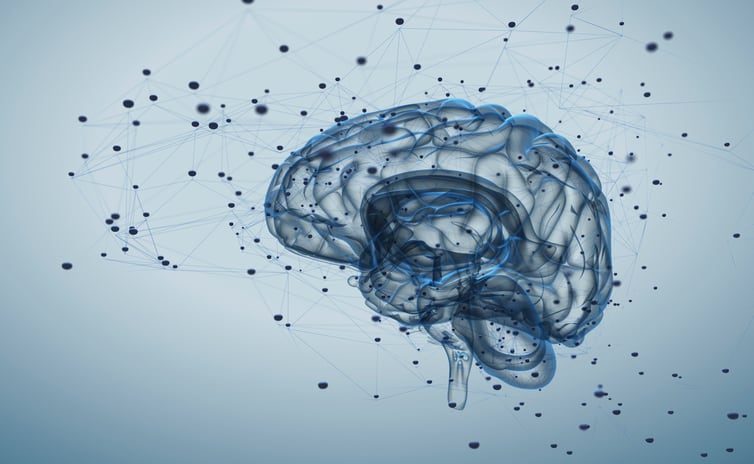Commenting on the research, Clare Bale, head of research at Parkinson’s UK, said "In most cases, the causes of Parkinson's are a mystery. But understanding how the condition starts and progresses is the first step to stopping it.
“The study builds on previous research indicating that, for some, Parkinson's starts in the gut.”
The research team, based at the Van Andel Research Institute (VARI) in the US, have suggested a link between the removal of the appendix and a reduced risk of developing Parkinson's.
Its removal would inevitably sever the gut and vagus nerve - the main connection that runs along the so-called gut-brain axis.
Research suggests that severing this nerve may prevent sticky clumps of a protein called alpha-synuclein, from spreading to the brain, reducing the Parkinson's risk.
Appendix, a major role in PD?
“Our results point to the appendix as a site of origin for Parkinson’s and provide a path forward for devising new treatment strategies that leverage the gastrointestinal tract’s role in the development of the disease,” said Dr Viviane Labrie an assistant professor at VARI and senior study author.
“Despite having a reputation as largely unnecessary, the appendix actually plays a major part in our immune systems, in regulating the makeup of our gut bacteria and now, as shown by our work, in Parkinson’s disease.”
As well as cutting the vagus nerve, animal studies point to gut bacteria that live in the gut. NutraIngredients reported previously on the theory that gut microbes may trigger Parkinson’s disease.
California Institute of Technology (Caltech) researchers used mice bred to produce high levels of alpha-synuclein.
However, only mice with bacteria in their gut developed Parkinson's symptoms - an observation not seen in sterile mice.
When bacteria from individuals with Parkinson's were transplanted into these mice, more symptoms were observed when compared to bacteria taken from healthy people.
Bacterial species from Parkinson’s donors included Proteus, Bilophila, and Roseburia, with a loss of members of families Lachnospiraceae, Rikenellaceae, and Peptostreptococcaceae, as well as Butyricicoccus.
“We have discovered for the first time a biological link between the gut microbiome and Parkinson's disease,” said senior study author and professor of Microbiology at Caltech, Dr Sarkis Mazmanian.
Study details
The VARI research team also focused on the production of alpha-synuclein, which is thought to accumulate in the gastrointestinal tract and contribute to PD’s progression.
In two independent epidemiological datasets, involving more than 1.6 million individuals, the team observed that removal of the appendix decades before PD onset was associated with a lower risk for PD, particularly for individuals living in rural areas, and delayed the age of PD onset.
They found that the healthy human appendix contained a build-up of alpha-synuclein and PD-associated toxic alpha-synuclein products that are known to accumulate in Lewy bodies, a characteristic of PD.
Lewy bodies are present in the brains of every person with Parkinson's but there is evidence that they may originate in other areas of the body and travel to the brain. Lewy bodies have also previously been found in the gut and vagus nerve.
With these observations, the team proposed that the normal human appendix contained pathogenic forms of alpha-synuclein that affect the risk of developing PD.
What tips the scale in favour of Parkinson’s?
“We were surprised that pathogenic forms of alpha-synuclein were so pervasive in the appendixes of people both with and without Parkinson’s. It appears that these aggregates — although toxic when in the brain — are quite normal when in the appendix. This clearly suggests their presence alone cannot be the cause of the disease,” Labrie said.
“Parkinson’s is relatively rare — less than 1% of the population — so there has to be some other mechanism or confluence of events that allows the appendix to affect Parkinson’s risk. That’s what we plan to look at next; which factor or factors tip the scale in favour of Parkinson’s?”
The study also demonstrated that an appendectomy could delay disease progression, pushing back diagnosis by an average of 3.6 years.
As there are no definitive tests for Parkinson’s, people often are diagnosed after motor symptoms such as tremor or rigidity arise.
By then, the disease typically is quite advanced, with significant damage to the area of the brain that regulates voluntary movement.
“We have shown that the appendix is a hub for the accumulation of clumped forms of alpha-synuclein proteins, which are implicated in Parkinson’s disease,” said Bryan Killinger, the study’s first author and a postdoctoral fellow in Labrie’s laboratory.
“This knowledge will be invaluable as we explore new prevention and treatment strategies.”
Professor Tom Foltynie, National Hospital for Neurology & Neurosurgery, UCL Institute of Neurology, said “This is strong, highly valuable, long term epidemiological evidence providing further links between gut pathology and the subsequent risk of developing Parkinson’s disease.
"The consistency of the findings between two separate large datasets is also strengthened by the reports of abnormal forms of alpha synuclein protein (which causes Parkinson’s disease pathology in the brain) commonly occurring in human appendix specimens.
“The question that remains is why Parkinson’s develops in only some people with abnormal alpha synuclein aggregation in the gut, and why others are seemingly resistant. An answer to this will help us intervene to prevent those processes linking gut pathology to brain disease.”
Source: Science Translational Medicine
Published online: DOI: 10.1126/scitranslmed.aar5280
“The vermiform appendix impacts the risk of developing Parkinson’s disease.”
Authors: Bryan Killinger, Zachary Madaj, Jacek W. Sikora, Nolwen Rey, Alec Haas, Yamini Vepa, Daniel Lindqvist, Honglei Chen, Paul Thomas, Patrik Brundin, Lena Brundin and Viviane Labrie.

